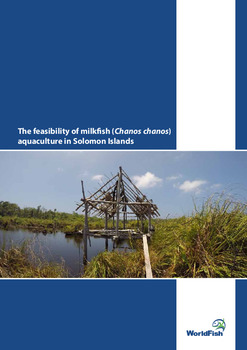The feasibility of milkfish (Chanos chanos) aquaculture in Solomon Islands

Citation
Sulu, R.J. et al. (2016). The feasibility of milkfish (Chanos chanos) aquaculture in Solomon Islands. Penang, Malaysia: WorldFish. Program Report: 2016-07
Fish is crucial to food and nutrition security in Solomon Islands, and demand is expected to increase due to a growing population. However, it is projected that current capture fisheries production will not meet this growing demand. Aquaculture has the potential to mitigate the capture fishery shortfall, and the Government of Solomon Islands is prioritizing aquaculture as a solution to meet future food and income needs. Aquaculture in Solomon Islands is still in early development. Mozambique tilapia (Oreochromis mossambicus) is farmed for household consumption, but its prolific reproductive rate and resulting slow growth limit its potential as a commercial aquaculture species. More productive fish species that are not indigenous to Solomon Islands but are successfully farmed overseas could be introduced; however, such a decision needs to take into account the potential ecological or social impacts. For land-based pond aquaculture, the only indigenous species that has been farmed extensively elsewhere is milkfish (Chanos chanos). This report presents a feasibility assessment for milkfish farming in Solomon Islands. It synthesizes the current knowledge about milkfish farming and presents results of a 4-year study on the potential for milkfish aquaculture in Solomon Islands.
Permalink
Date Available
Type
Countries
Copyright
CC BY 4.0
Research Themes
Topics